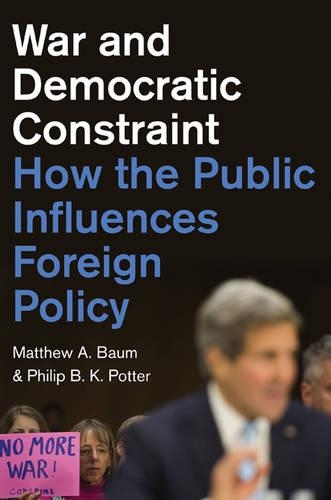
War and Democratic Constraint: How the Public Influences Foreign Policy
(Paperback)
Available Formats
Publishing Details
War and Democratic Constraint: How the Public Influences Foreign Policy
By (Author) Matthew A. Baum
By (author) Philip B. K. Potter
Princeton University Press
Princeton University Press
6th July 2015
United States
Classifications
Tertiary Education
Non Fiction
Political structures / systems: democracy
327.1
Short-listed for Choice Magazine Outstanding Reference/Academic Book Award 2015
Physical Properties
Paperback
280
Width 152mm, Height 235mm
340g
Description
Why do some democracies reflect their citizens' foreign policy preferences better than others What roles do the media, political parties, and the electoral system play in a democracy's decision to join or avoid a war War and Democratic Constraint shows that the key to how a government determines foreign policy rests on the transmission and availa
Reviews
One of Choice's Outstanding Academic Titles for 2015 "[A] groundbreaking study."--Foreign Affairs "This scholarly book is an important contribution to the role of political communication in foreign policy making. It is strongly recommended for foreign policy and political communication scholars and democratic peace theorists."--Choice "A very thoughtful study about war initiation which can be the start for a true sociology of democratic institutions and their impact on war and peace."--Thomas Lindemann, European Review of International Studies "Why are some democracies more sensitive than others to the foreign policy preferences of citizens The answer that the book presents to this research question is innovative, thoroughly argued and consistently backed up by solid empirical research... A seminal reading recommended for all scholars interested in the way domestic factors influence foreign policy."--Cristian Nitoiu, Political Studies Review
Author Bio
Matthew A. Baum is the Marvin Kalb Professor of Global Communications and professor of public policy at Harvard University. He is the author of Soft News Goes to War and the coauthor of War Stories (both Princeton). Philip B. K. Potter is assistant professor of politics at the University of Virginia.
